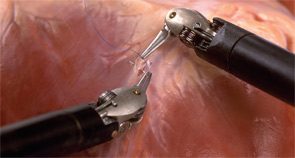Neil Chheda, MD, assistant professor of otolaryngology at the University of Florida in Gainesville, realized a few years ago that nearly half of his patients on proton pump inhibitors were taking them incorrectly.


Neil Chheda, MD, assistant professor of otolaryngology at the University of Florida in Gainesville, realized a few years ago that nearly half of his patients on proton pump inhibitors were taking them incorrectly.

Need an incentive to implement an electronic health records (EHR) system in your practice? How about $44,000? That’s the amount the federal government is making available to eligible physicians as part of its effort to speed up the adoption of health information technology throughout the U.S. In fact, under the Health Information Technology for Economic and Clinical Health Act (HITECH Act), part of the American Recovery and Reinvestment Act of 2009, billions of federal stimulus dollars are flowing to medical practices throughout the U.S. to help physicians set up EHR systems.
The time for otolaryngologists to adopt electronic health records (EHRs) is now, practice management and information technology experts said at a session at the 2010 Annual Meeting of the American Academy of Otolaryngology-Head and Neck Surgery, held here Sept. 26-29.

It’s a common challenge: In a tough economy, do you spend to increase patient revenue or save to keep your practice afloat?
I have been a strong advocate of electronic medical records (EMRs) for almost a decade. In fact, I used the phrases “It is the silver bullet for health care reform infrastructure” and “It is the cornerstone for health care reform infrastructure” to describe EMR plans when President Obama was campaigning. However, technology, like fire, can warm your house or burn it down, cook your food or kill you. Likewise, the wrong EMR will escalate inefficiency and raise health care costs. The wrong mandates or the wrong incentives have the potential to paralyze the day-to-day practice of medicine.

The federal government’s proposed rule establishing incentive payments for physicians who “meaningfully use” electronic health records (EHRs) is too onerous and would discourage physicians from participating, some otolaryngologists say.

Using robotic arms, surgeons can now remove the thyroid gland through an incision in the axilla, or armpit, thereby avoiding the large scar on the front of the neck caused by traditional thyroid surgery. The procedure offers no other benefits over the traditional approach developed a century ago by Emil Theodor Kocher, MD, according to head and neck surgeons who perform the robotic surgery. In fact, it takes longer to recover from the robotic surgery, they say, with some patients complaining of chest numbness for months afterwards.

Electronic medical records (EMRs) are costly and require significant staff time to implement but have the potential to bring huge benefits to patients and doctors alike, said speakers at the Triological Society’s Combined Sections Meeting held here Feb. 4-7.

The genome project sequenced all three billion base pairs of human DNA, revealing the instructions cells need to build all the proteins in the body. But that was just a warm-up, according to Thomas C. Spelsberg, PhD, of the Mayo Clinic in Rochester, Minn.

On Feb. 17, 2009, President Obama signed into law the American Recovery and Reinvestment Act of 2009 (commonly referred to as ARRA or the Stimulus Bill) which includes the Health Information Technology for Economic and Clinical Health (HITECH) Act. The HITECH Act includes significant changes to the Health Insurance Portability and Accountability Act of 1996 (HIPAA) that affect otolaryngologists and other health care providers, as well as those who process or work with health care information. Below is a summary of how these new provisions, many of which go into effect this Feb. 17, will affect your practice.